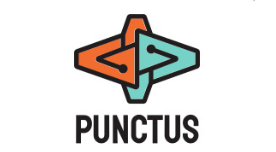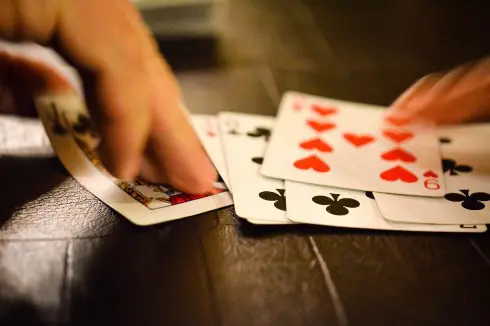It’s Wednesday night. Time to tune into the Travel Channel. Why? My friends and I play Texas Hold’Em in poker tournaments. Can anyone play like the pros on TV? It seems so effortless. Let’s look at some little things that can make or ruin your poker game.
Is poker luckier than skill? Some people play poker and manage to get every card necessary for the winning hand. Others with hands that aren’t strong enough to beat the other hand at the table will slyly walk away from the game with a pot and a wink.
The answer is yes. Gambling is a game that involves chance. It takes a bit of both luck and skill to be a good poker player.
Consider this: Some mathematicians believe that 1 in 649 739 people will get a royal flush. Given these odds, you can be sure that you will lose more if you depend on the luck of your draw than you will win.
Poker requires skill. How can you win every time and become a skilled poker player? You can be an expert poker player but will not win every time. The old saying, “Know when to hold ’em and when to fold,” rings true. You must correspondingly consider the skill of the other players, your betting and bluffing skills, and the stakes and luck.
These are some tips to help you become a successful poker player:
If you can’t afford to lose, don’t gamble. Many lose a lot of banknotes because they cannot plan and bet too much. You should choose a limit and stick with it. You should not borrow money to gamble. This will only increase your risk and add to the pressure. Stick to your budget!
Keep your head clear. Avoid alcohol if you want to win. You might place bets you wouldn’t usually.
Avoid playing if you’re feeling stressed or emotionally. This can make it difficult to win big at the poker tables. Focus on the task at hand. Focus on what is essential.
Learn about your opponents and what they do. It may be necessary to adapt to their play style. Don’t be intimidated by an aggressive player or another’s passiveness.
Please don’t wait for cards to come; they rarely do. It would benefit if you weren’t afraid of folding a poor hand. Poker can be a tedious game. You won’t always win.
Show a poker face. Even the most experienced players can see a lot from your expressions and mannerisms. It doesn’t matter if you have great cards or a bad hand. It would help if you displayed the same emotions and gave no clues. If you’re a more experienced player, this style can project false information to other players and force them to read fraudulent cards. You could make a convincing bluff by displaying aggressive betting, table talk, or talking.
Patience is key. You must also know when to place your bets. Learn the rules and how to place your bets. Be smart and take control of your chances. Remember that bluffing won’t work if your opponent is a bad player. Expert players will pick you apart and make your night short.
Practice! You can practice with hand-held games, low-stakes games, or just for fun to improve your game. Ask other players for advice and books about the game and what might happen in different situations.
You can find thousands of poker books that offer tips, guidelines, and rules, but the most important thing to remember is your poker strategy. You can improve your poker game by practicing and refining your skills. You will win if you know your limits and play the odds.
Sometimes, the differences between traditional and online poker games are not always noticeable.
Online poker is a different experience than sitting at a table with your friends. Many people make online poker illegal, especially in the United States. It is almost unimaginable to tell if a table game is legal in your area, but it is becoming harder to determine if online poker is legal.
Despite these grey areas, millions of people in the United States and all over the globe enjoy recreating online poker from the comfort of home. This is to put it in perspective: In 2005, online poker revenue was estimated to have been $200 million.
The poker is enormous, from the tables to the chips on the table to the players and the people playing them. Online poker is not only generating colossal revenue and making new millionaires among site owners and players, but it is also increasing the popularity of poker. The public is becoming more knowledgeable about poker but also showing interest in poker.
A few months back, poker players like Chris Ferguson (Jesus), Annie Duke (The Professor), Howard Lederer (The Professor), and Hoyt Corkins (“The Alabama Cowboy”), to name just a few, were not known by the general public. They are now celebrities. Even celebrities like Jennifer Tilly, Ben Affleck, and Mimi Rogers have traded the glamour of Hollywood for the green grass of the poker tables – at most, on occasion.
Many of these celebrities play in poker tournaments with poker stars, but most mortals can only access the poker world via online poker sites like partypoker.com and pokerstars.com.
Sitting at a poker table can be daunting, especially for a new player. They can feel out of their league and intimidated if others have more experience in the game.
Online poker is an entirely different experience. Online poker offers anonymity that protects the “newbie”‘s psyche. They can view games for as long as they like before actually participating in the game. Many online sites will offer tutorials and practice games to help beginners. Sometimes, the leading site will have a separate area for beginners. Online games often have buttons that can be used for different actions. They also include prompts on the screen to help the novice.
Internet poker sites offer a variety of limits that allow beginners to start betting. Access to the internet is easy as well. An online game is much more convenient than a table game. It can live accessed 24 hours a day from any location with an Internet connection.
Online poker is not without its drawbacks, especially if you want to participate in highly-televised tournaments. First, you have to sit down and play at the table. Online preparation will not be able to duplicate or offset the feeling of being in a chair next to a Doyle Brunson, Chris Moneymaker, or Daniel Negreanu.
It is possible to bluff in an online poker game, but learning how to read your opponents is extremely difficult and frustrating.


